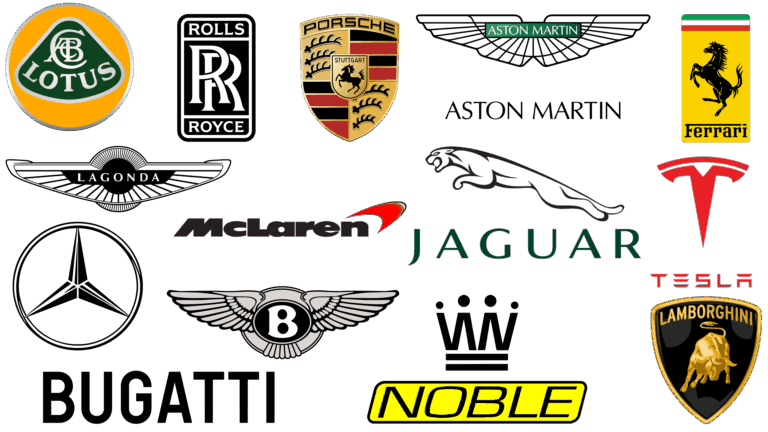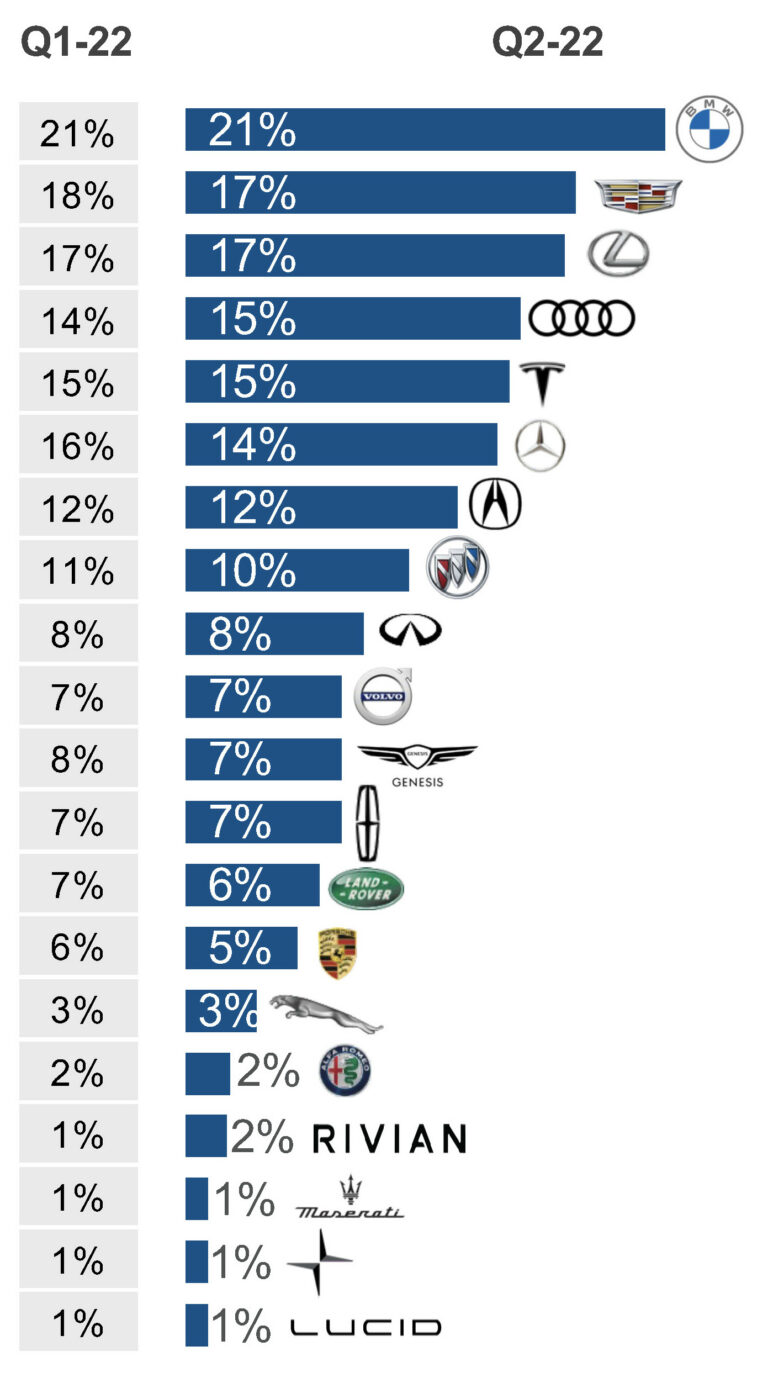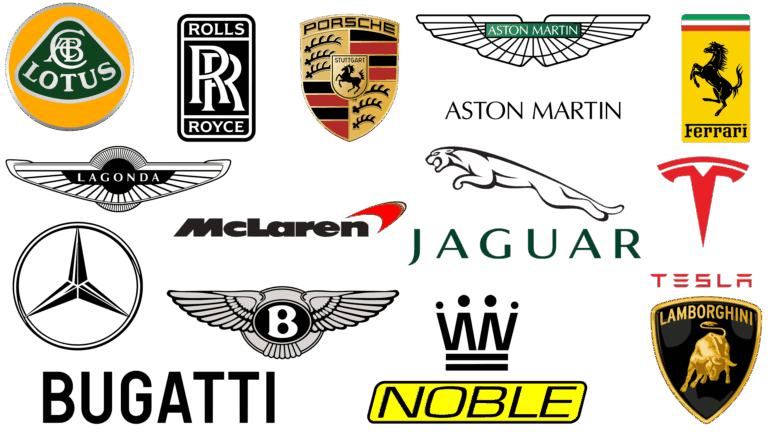First Car Brand: The Genesis of Mobility and Personal Milestones
First Car Brand: The Genesis of Mobility and Personal Milestones cars.truckstrend.com
The term "First Car Brand" carries a dual significance, echoing through the annals of history and resonating deeply within personal experience. On one hand, it refers to the pioneering entity that ignited the automotive revolution, fundamentally altering human civilization. On the other, it embodies the indelible mark left by the brand of one’s inaugural vehicle – a personal milestone signifying independence, responsibility, and the dawn of a new chapter in life.
This comprehensive guide will explore both facets of "First Car Brand," from its historical genesis to the practical considerations involved in selecting the perfect brand for your own entry into the world of motoring. Understanding this multifaceted concept is crucial, whether you’re a history enthusiast or a prospective first-time car owner.
First Car Brand: The Genesis of Mobility and Personal Milestones
The Historical Genesis: Benz & Cie. – The True First Car Brand
To truly understand the concept of the "First Car Brand," one must journey back to 1886. It was in this year that German engineer Karl Benz unveiled his Benz Patent-Motorwagen, widely regarded as the world’s first automobile. More than just a vehicle, it was the product of Benz & Cie. (later Mercedes-Benz), a company founded by Benz in 1883.
Key Information:
- Founder: Karl Benz
- Establishment: 1883 (as "Benz & Cie.")
- Invention: The Patent-Motorwagen, patented on January 29, 1886.
- Significance: It was the first internal combustion engine-powered automobile that was successfully commercialized and sold to the public, laying the groundwork for the global automotive industry. Benz & Cie. was the first company to be recognized solely for its production of motor vehicles.

Legacy and Impact:
The Benz Patent-Motorwagen wasn’t just a prototype; it was a testament to visionary engineering. Its success paved the way for other pioneers like Gottlieb Daimler and Wilhelm Maybach. Benz & Cie. continued to innovate, becoming a formidable force in the nascent automotive world. The merger of Benz & Cie. with Daimler Motoren Gesellschaft (DMG) in 1926 to form Daimler-Benz (and its iconic Mercedes-Benz brand) solidified its place at the pinnacle of automotive history.
The importance of Benz & Cie. as the "First Car Brand" cannot be overstated. It established the manufacturing processes, sales models, and fundamental design principles that would evolve into the colossal industry we know today. Without this initial brand, the automotive landscape, and indeed global transportation, would be vastly different.
Navigating Your Personal "First Car Brand": Why It Matters

Beyond its historical roots, "First Car Brand" also refers to the specific make and model that ushers an individual into vehicle ownership. This personal "First Car Brand" is more than just a purchase; it’s a significant life event that symbolizes newfound freedom, responsibility, and independence. The brand you choose for this milestone can profoundly impact your initial driving experience and set the tone for your relationship with cars.
Key Information for a Good First Car Brand Choice:
- Reliability: Essential to avoid frequent, costly repairs and ensure consistent mobility.
- Safety: Modern safety features are paramount, especially for new drivers.
- Affordability: Not just the purchase price, but also insurance, fuel, and maintenance costs.
- Ease of Maintenance: Common parts availability and straightforward serviceability.
- Resale Value: A practical consideration for when it’s time to upgrade.
Benefits of Choosing Wisely:
- Enhanced Freedom & Independence: The ability to travel on your own terms.
- Valuable Learning Experience: Mastering driving skills, basic maintenance, and financial responsibility.
- Budget Management: Learning to factor in all costs associated with car ownership.
- Building Credit: If financed, a first car can be an excellent way to establish a credit history.
- Peace of Mind: Knowing you have a dependable vehicle reduces stress.
Important Considerations:
Before settling on a specific brand, consider these critical factors:
- Budget: What can you realistically afford for the purchase price, monthly payments (if financing), insurance, fuel, and routine maintenance? Don’t forget unexpected repairs.
- Intended Use: Will it be primarily for short commutes, highway driving, carrying passengers, or light hauling? This dictates vehicle size and type.
- Safety Features: Look for modern airbags (front, side, curtain), Anti-lock Braking System (ABS), Electronic Stability Control (ESC), and potentially driver-assist features like blind-spot monitoring or rearview cameras.
- Reliability Ratings: Consult reputable sources like Consumer Reports, J.D. Power, and independent mechanics for brand and model-specific reliability data.
- Insurance Costs: This can be surprisingly high for new drivers. Get quotes for specific models before buying.
- Fuel Efficiency: A significant ongoing cost, especially with fluctuating gas prices.
- Resale Value: Some brands hold their value better than others, which is beneficial when you decide to sell or trade up.
- Brand Reputation & Service Network: Is the brand known for good customer service? Are dealerships/service centers easily accessible in your area?
Choosing Your "First Car Brand": A Step-by-Step Guide
Selecting your personal "First Car Brand" requires careful thought and research. Here’s a practical, step-by-step guide to navigate the process:
How-To Guide:
-
Define Your Needs & Budget:
- Needs: Commute distance, passenger capacity, parking availability, weather conditions you’ll drive in.
- Budget: Determine your absolute maximum for purchase, and estimate monthly costs for fuel, insurance, and maintenance. Be realistic.
-
Research & Shortlist Brands:
- Focus on brands renowned for reliability, safety, and affordability in their entry-level models. Common recommendations include Toyota, Honda, Mazda, Hyundai, Kia, and certain Ford/Chevrolet models.
- Read reviews, watch videos, and compare models within your budget.
-
Consider New vs. Used:
- New Cars: Pros: Latest safety features, warranty, no prior wear and tear. Cons: Higher price, rapid depreciation.
- Used Cars: Pros: Significantly lower price, slower depreciation, wider selection for the money. Cons: No warranty (or limited), potential for hidden issues, more wear and tear. For a first car, a well-maintained used vehicle often offers the best value.
-
Prioritize Safety Features:
- Look for vehicles with excellent crash test ratings from organizations like NHTSA (National Highway Traffic Safety Administration) or IIHS (Insurance Institute for Highway Safety).
- Ensure the car has standard safety features like multiple airbags, ABS, and ESC. Newer cars might also offer advanced driver-assistance systems (ADAS) like automatic emergency braking or lane-keeping assist.
-
Test Drive & Evaluate:
- Test drive several models from your shortlist. Pay attention to comfort, visibility, handling, braking, acceleration, and ease of parking.
- Test it in conditions you’ll typically encounter (city, highway).
- Check infotainment system, climate control, and overall ergonomics.
-
Check Insurance & Maintenance Costs:
- Before finalizing a decision, get actual insurance quotes for the specific models you’re considering. Premiums vary drastically based on vehicle type, driver age, location, and driving history.
- Research common maintenance costs and part availability for the brand/model.
-
Get a Pre-Purchase Inspection (PPI):
- Crucial for used cars. Have an independent, trusted mechanic inspect the vehicle before purchase. They can identify hidden problems that aren’t apparent during a test drive.
-
Negotiate & Purchase:
- Don’t be afraid to negotiate the price.
- Understand all aspects of financing if you’re taking out a loan, including interest rates, loan terms, and total cost.
Practical Advice & Actionable Insights:
- Don’t Rush: Take your time. This is a significant decision.
- Seek Advice: Talk to experienced drivers, mechanics, and even insurance agents.
- Factor in All Costs: Remember that the purchase price is just the beginning. Fuel, insurance, maintenance, and registration add up.
- Start Small: A compact or subcompact car is often easier to park, maneuver, and insure for a new driver.
- Consider a Certified Pre-Owned (CPO) Vehicle: If buying used, CPO programs offered by dealerships can provide peace of mind with extended warranties and rigorous inspections.
Types and Categories of "First Car Brands" (for New Drivers)
While no single brand is universally "best" for a first car, certain brands and vehicle types consistently rank high due to their characteristics:
-
Reliability-Focused Brands:
- Toyota: Known for legendary reliability, low maintenance costs, and strong resale value. Models like the Corolla and Camry are popular choices.
- Honda: Similar to Toyota, offering excellent reliability, fuel efficiency, and a good driving experience. The Civic and Fit are prime examples.
- Subaru: Excellent for those needing All-Wheel Drive (AWD) for challenging weather conditions, with strong safety ratings.
-
Value-Oriented Brands:
- Hyundai/Kia: Have made tremendous strides in quality, offering excellent value, comprehensive warranties (especially new), and feature-rich entry-level models (e.g., Elantra, Forte).
- Mazda: Offers a more engaging driving experience than some rivals, with good reliability and stylish designs (e.g., Mazda3).
-
Compact/Subcompact Brands & Models:
- Ideal for city driving, easier to park, and typically more fuel-efficient. Examples include the Honda Fit, Toyota Yaris, Kia Rio, and Hyundai Accent.
-
Sedans/Hatchbacks:
- Often the most practical and affordable first car choice, offering good cargo space for their size and balanced handling. Examples: Honda Civic, Toyota Corolla, Mazda3, Ford Focus (used).
-
Small SUVs (with caution):
- Growing in popularity for their higher driving position and perceived safety. While some are suitable, they can be more expensive to insure and fuel than smaller cars. Examples: Honda HR-V, Hyundai Kona, Mazda CX-30.
Potential Challenges and Solutions
Owning your first car, regardless of the brand, can present a unique set of challenges. Being prepared can make the experience smoother.
Challenges:
- High Insurance Premiums: New drivers, especially young ones, are considered high-risk.
- Unexpected Repairs: Even reliable cars can break down, leading to unforeseen costs.
- Depreciation: Cars lose value quickly, especially new ones.
- Limited Budget: Making the best choice within tight financial constraints.
- Maintenance Neglect: Forgetting or putting off routine service can lead to bigger problems.
Solutions:
- For Insurance:
- Choose a vehicle known for lower insurance costs (often compact sedans with good safety ratings).
- Consider a used car.
- Take a defensive driving course (some insurers offer discounts).
- Bundle insurance with other policies (e.g., home insurance).
- Explore telematics programs (usage-based insurance).
- For Repairs:
- Choose a brand/model with a strong reputation for reliability.
- Get a pre-purchase inspection.
- Set aside an emergency fund specifically for car repairs.
- Consider an extended warranty for a used car (if financially sensible).
- For Depreciation:
- Buy a reliable used car; the steepest depreciation has already occurred.
- Choose models known for holding their value well.
- For Budget Constraints:
- Prioritize needs over wants. A basic, reliable car is better than an expensive, unreliable one.
- Explore financing options carefully, understanding the total cost of the loan.
- Look for private sales (with extreme caution and a PPI) for potentially better deals on used cars.
- For Maintenance:
- Follow the manufacturer’s recommended maintenance schedule.
- Learn basic checks (tire pressure, oil level, fluid levels).
- Find a trustworthy mechanic before you need one.
Table: Popular "First Car Brands" & Estimated Cost Information
It’s impossible to provide a single "price" for "First Car Brand" as it refers to a concept and many different actual brands. However, here’s a table outlining popular brands often recommended for first-time buyers, along with estimated price ranges for their entry-level models and key characteristics.
Disclaimer: All prices are highly approximate and can vary wildly based on year, condition, mileage, trim level, optional features, location, market demand, and whether the car is new or used. Insurance impact is a general guide and depends heavily on the individual driver.
| Brand | Typical Entry-Level Models | New Price Range (Est.) | Used Price Range (Est. 3-7 yrs old) | Key Strengths | Insurance Impact |
|---|---|---|---|---|---|
| Toyota | Corolla, Camry, Yaris | $22,000 – $28,000 | $12,000 – $20,000 | Reliability, Resale Value, Fuel Economy, Safety | Low-Medium |
| Honda | Civic, HR-V, Fit | $23,000 – $29,000 | $13,000 – $21,000 | Reliability, Driving Dynamics, Fuel Economy | Low-Medium |
| Hyundai | Elantra, Kona, Accent | $21,000 – $27,000 | $10,000 – $18,000 | Value, Warranty (new), Features for Price | Medium |
| Kia | Forte, Rio, Seltos | $20,000 – $26,000 | $10,000 – $17,000 | Value, Warranty (new), Style, Features | Medium |
| Mazda | Mazda3, CX-30 | $23,000 – $30,000 | $12,000 – $20,000 | Driving Experience, Style, Reliability | Medium |
| Subaru | Impreza, Crosstrek | $24,000 – $30,000 | $14,000 – $22,000 | Standard AWD, Safety, Resale Value | Medium-High |
| Ford | Focus (used), Fiesta (used) | N/A (many discontinued) | $6,000 – $14,000 | Affordability (used), Practicality | Low-Medium |
| Chevy | Malibu, Trax | $25,000 – $32,000 | $10,000 – $18,000 | American Brand, Availability, Connectivity | Medium |
Frequently Asked Questions (FAQ) about Your First Car Brand
Q1: What is the single best "First Car Brand" for a new driver?
A1: There isn’t a single "best" brand, as it depends on individual needs, budget, and priorities. However, brands like Toyota, Honda, Hyundai, and Mazda are consistently recommended for their reliability, safety, and relatively low ownership costs.
Q2: Should I buy a new or used car for my "First Car Brand"?
A2: For most first-time buyers, a reliable used car (3-7 years old) offers the best value. It’s significantly cheaper than a new car, and the steepest depreciation has already occurred. New cars come with warranties and the latest features but are a much larger investment.
Q3: How much should I expect to spend on my "First Car Brand"?
A3: This varies widely. For a reliable used car, expect to spend anywhere from $8,000 to $20,000, depending on the brand, model, year, and condition. Don’t forget to budget for insurance, fuel, maintenance, and potential repairs.
Q4: What safety features are essential for a "First Car Brand"?
A4: Look for a car with a good crash test rating, multiple airbags (front, side, curtain), Anti-lock Braking System (ABS), and Electronic Stability Control (ESC). Newer models may also offer advanced driver-assistance systems (ADAS) like automatic emergency braking or blind-spot monitoring, which are highly beneficial.
Q5: How do "First Car Brand" choices affect insurance rates?
A5: Insurance rates are significantly influenced by the car’s make, model, year, and safety features. Generally, smaller, less powerful cars with good safety ratings and a low theft rate tend to have lower premiums. Sports cars, luxury vehicles, or highly customized cars will be more expensive to insure.
Q6: Are certain "First Car Brands" more reliable than others?
A6: Yes, brands like Toyota, Honda, and Subaru consistently rank high for reliability. Hyundai and Kia have also made impressive gains in reliability and build quality in recent years. Choosing a reliable brand minimizes the risk of costly and inconvenient breakdowns.
Conclusion: The Enduring Legacy and Personal Journey
The concept of "First Car Brand" bridges the monumental historical leap of automotive invention with the deeply personal journey of individual mobility. From Karl Benz’s pioneering Benz & Cie. that revolutionized transportation, to the specific make and model that marks a new driver’s independence, the "First Car Brand" is a powerful symbol.
While the historical "First Car Brand" laid the foundation for an entire industry, choosing your personal "First Car Brand" is a crucial decision that impacts safety, finances, and overall driving satisfaction. By prioritizing reliability, safety, affordability, and conducting thorough research, you can ensure your inaugural vehicle is a positive and empowering experience. It’s more than just a means of transport; it’s a rite of passage and the foundation for countless journeys ahead.







